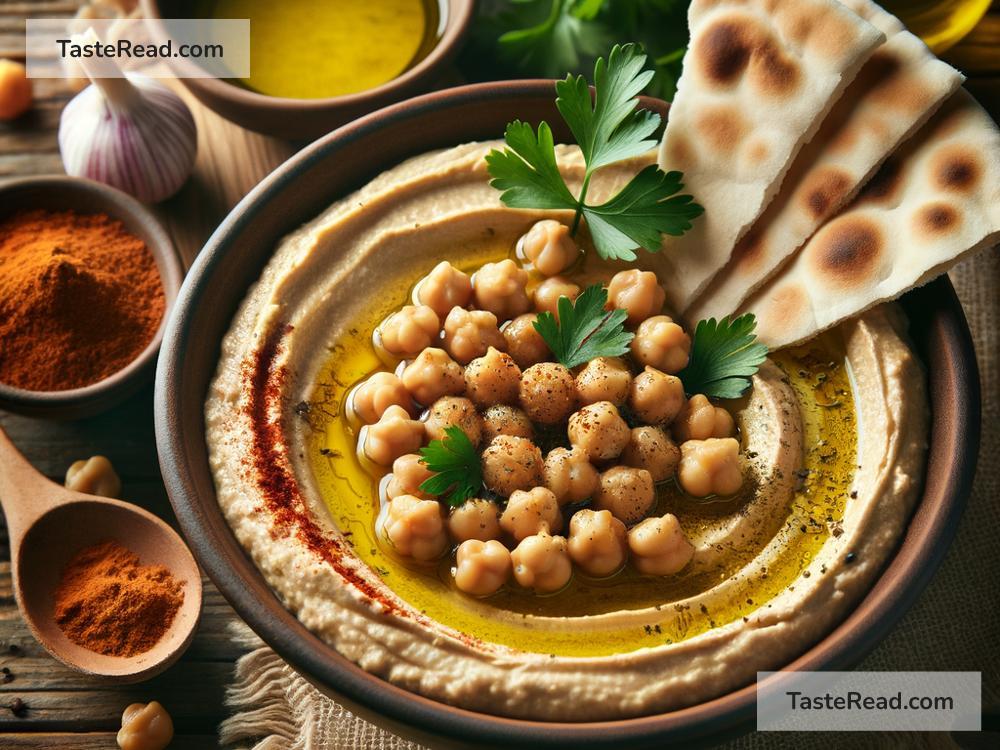How Lebanese Hummus Became the Crown Jewel of Middle Eastern Cuisine
In the vast and aromatic tapestry of Middle Eastern cuisine, one dish has danced its way across continents and into the hearts of millions. Hummus, that creamy, dreamy concoction, has surpassed mere food status to become a symbol of culinary delight. Today, we journey into the heart of this phenomenon, exploring how Lebanese hummus, in particular, captured the world’s imagination.
The Humble Beginnings
To understand the rise of hummus, we must first travel back in time. Chickpeas, the cornerstone of hummus, have been cultivated in the Middle East for thousands of years. Historical records and recipes date back to ancient Egypt, but it’s the Lebanese touch that elevated hummus to its lauded status.
What Makes Lebanese Hummus Stand Out?
Lebanese hummus is a masterclass in balance and simplicity. Traditionally, it comprises just a handful of ingredients: cooked and mashed chickpeas, tahini (sesame paste), lemon juice, and garlic. What sets Lebanese hummus apart is not just the quality of these ingredients but the care with which it’s prepared. The result is a perfectly smooth, creamy dip that’s both tangy and tantalizing.
Lebanon’s contribution to hummus is also in its presentation and variations. Garnished with olive oil, paprika, parsley, or topped with whole chickpeas, Lebanese hummus is as much a feast for the eyes as it is for the palate. Beyond the classic recipe, Lebanon has gifted the world with variations like hummus with meat or spiced lamb, incorporating bits of Lebanese culture and tradition with every serving.
The Silk Road of Flavors: How Hummus Traveled
The global journey of hummus was facilitated by the mobility of the diaspora and the spice trade routes, spreading the flavors of the Middle East to different corners of the world. With the Lebanese diaspora, in particular, establishing communities across the globe, Lebanese restaurants and eateries became the humble ambassadors of hummus, introducing this staple to diverse audiences.
Moreover, the universal appeal of hummus – its vegetarian base, health benefits, and the versatility of its use – made it an attractive addition to the global food scene. From a simple dip or spread to a base for more elaborate dishes, hummus found its way into the hearts (and stomachs) of people worldwide.
Hummus as a Cultural Phenomenon
In recent years, hummus has transcended its culinary roots to become a symbol of Middle Eastern cuisine and a testament to the region’s impact on global food culture. International hummus day, celebrated on May 13th, exemplifies the global embrace and affection for this dish. Moreover, hummus has become a canvas for culinary experimentation, leading to a plethora of flavors ranging from beetroot to avocado-infused variations.
Yet, amidst the innovation, Lebanese hummus remains the gold standard, a touchstone for authenticity and quality. It captures the essence of Lebanese hospitality – generous, warm, and inviting. Serving hummus is akin to opening one’s home and heart, an ethos that resonates deeply in Lebanese culture.
The Social and Health Impact
Lebanese hummus isn’t just about tantalizing taste buds. It’s a healthful blend rich in proteins, healthy fats, and fiber. This aligns with growing global trends towards healthier, plant-based diets, making hummus a sought-after choice for people across varied dietary preferences.
On a social level, hummus has an uncanny ability to bring people together. It’s often at the center of communal eating, encouraging sharing and conversation. In a way, hummus has become a metaphor for unity, bridging cultural and culinary divides.
Conclusion: A Dish for the Ages
As we’ve seen, the Lebanese contribution to the hummus story is not just about a recipe but about imparting a piece of Lebanese culture and tradition with every bite. From its humble origins to its status as a global culinary darling, Lebanese hummus symbolizes the universal language of food – one that crosses barriers and unites us in shared experiences and pleasures.
So, the next time you dip a piece of warm pita into a bowl of creamy Lebanese hummus, remember, you’re not just savoring a delicious dish; you’re partaking in a rich tapestry of history, culture, and community. Lebanese hummus, in its essence, is more than a symbol of Middle Eastern cuisine; it’s a testament to the enduring power of food to connect, inspire, and delight.


